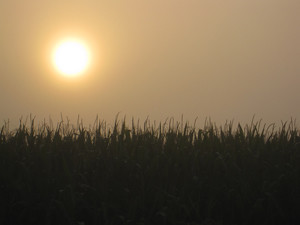Facts can be checked and verified in some objective source, such as reference materials or people who were on the scene at the time or know about the places and events.
Memories, on the other hand, encompass all the shades of meaning, the lens of experience, the emotional connections that color and shape a place and experiences. Your personal history can't be "true" without both facts and memory. Together, facts and memory combine detail, emotion, and meaning into a good story.
 |
| RMS Titantic, courtesy Wikipedia |
- On her maiden voyage, the ship scrapes an iceberg at 11:40 p.m. April 14, 1912;
- Five compartments fill with water in ship built to stay afloat with water in four;
- The ship's 20 lifeboats can accommodate only 1,178 persons; more than 2,200 were on board;
- At 2:20 a.m. April 15, 1912, the Titantic sinks;
- 1,514 people are killed.
Now that's a tragic and compelling story, but don't we want to know more? Don't we want to know who these people were, the heroes and villians, the compassionate and the self-absorbed? And even when the facts are invented (think Rose and Jack in James Cameron's 1997 movie, Titantic), the story has its own truth.
With personal histories, many facts can be verified and checked to bolster your story and to add details for the reader. The Internet, of course, is a treasure trove of information. (I found a picture of the "Jumbo" that I used in my March 12, 2012 post on the Roanoke, Illinois Web site--thank you, Cheryl Wolfe--as well as a Centennial History of the town that I purchased on E-Bay.) And Google Maps lets you zero right in on streets and buildings in places far away, refreshing your memory in a way that's almost as good as time travel.
Too, if never hurts to check your memory with family members, friends, colleagues, or others who shared your experiences or lived in the same time and place. Their information may adjust your memory or just add to the story.
On a recent trip to see my folks in Oklahoma, my dad and mom "adjusted" my story about the night when my pals, Jim and Chuck, came calling after dark and got the wrong bedroom window (See "Night Visitors," March 20, 2012, below).
When she was awakened to a flashlight shining into their bedroom window, Mom said her first thought was "carnies!" The carnival that was in town employed a group of rather seedy looking characters whom she thought might easily be capable of mischief, especially in semi-isolated house outside of town.
She recollected not only screaming, but calling out, "Get the gun!" a demand meant to scare the culprits, because the only gun my dad owned was a shotgun for hunting birds, which was kept--unloaded, of course--in its case way, way back in his closet behind some heavy garment bags. But just the word "gun" surely lit a fire under Jim and Chuck as they made a hasty retreat through the cornfield.
Although I thought my dad had figured out who the visitors were on his own, he had a slightly different memory. He told me, "When I went into town the next day, the story was already all over town. Jim and Chuck had been bragging about it. Somebody, I don't remember who, asked me about it. So when I saw Jim, I let him know that I knew what they'd been up to."
A-ha! So it wasn't Jim and Chuck's reputations that gave them away. It was just their big mouths!
Still, I imagine they would have their very own versions of the truth.





